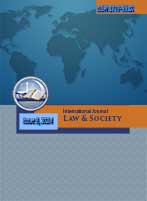Ensuring witness safety: European and Ukrainian experience
Keywords:
witness testimony, evidence, criminal proceedings, interrogation, propriety, admissibility, fairness of trialAbstract
The article is devoted to the issue of witness security organization in the context of the full-scale armed aggression of the Russian Federation. The very fact of armed aggression, the presence of witnesses in the temporarily occupied territory leads to the fact that a potential witness or members of his family can be or are being pressured. Taking into account the interests of the investigation, as well as the fact that the Constitution of Ukraine in Art. 3 declares a person, his life and health, inviolability and safety as the highest social value, it is necessary to ensure the safety of witnesses, victims and other persons within the framework of the relevant legal institution. The existing institution in Ukraine for ensuring the safety of participants in criminal proceedings is insufficiently effective, the use of foreign experience and recommendations of international organizations regarding this phenomenon will allow more effective protection of the identity of the witness, and as a result, obtain reliable testimony from him. The article analyzes the Recommendation of the Committee of Ministers of the Council of Europe and the judicial practice of both European countries and the international tribunal on witness protection issues. It is noted that in case of fear that physical, psychological or material harm may be caused to the witness, complete or partial anonymity may be granted. It was found out that in the issue of witness security in legal practice, it is customary to divide it into long-term and short-term. And as a conclusion, it can be stated, if necessary, the convergence of the national legislation of Ukraine and the EU by developing the concept of transforming the current institute of witness protection into an analogue of the program operating in European countries. including local self-government bodies.


